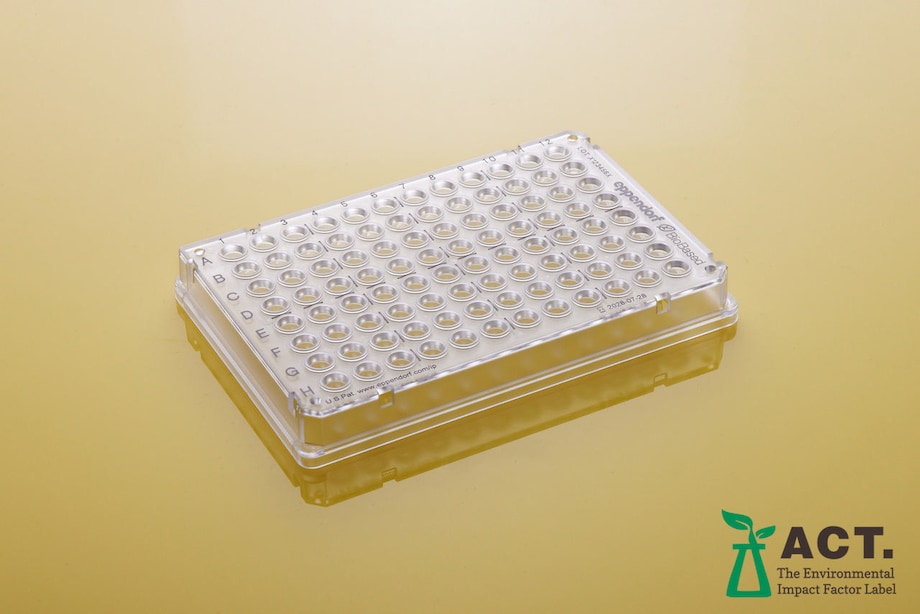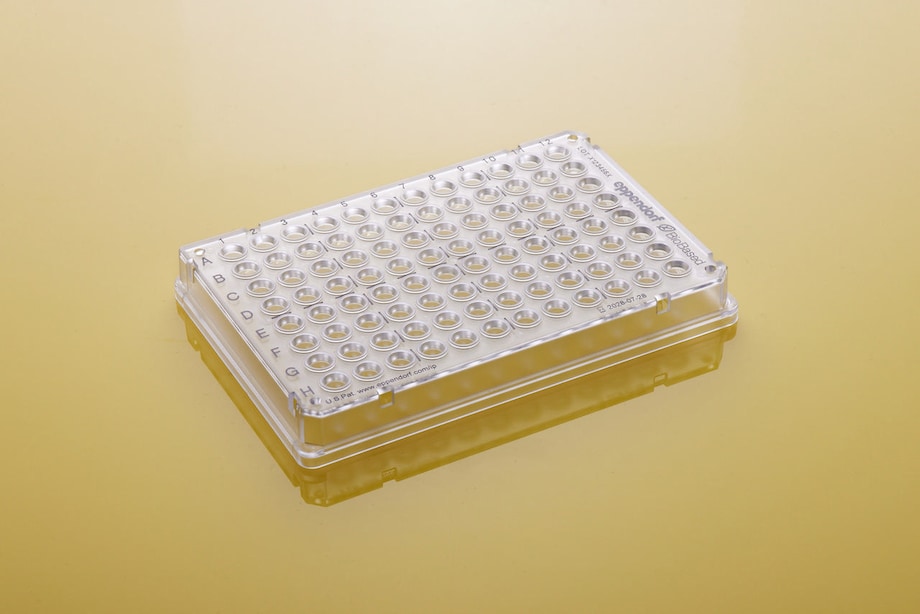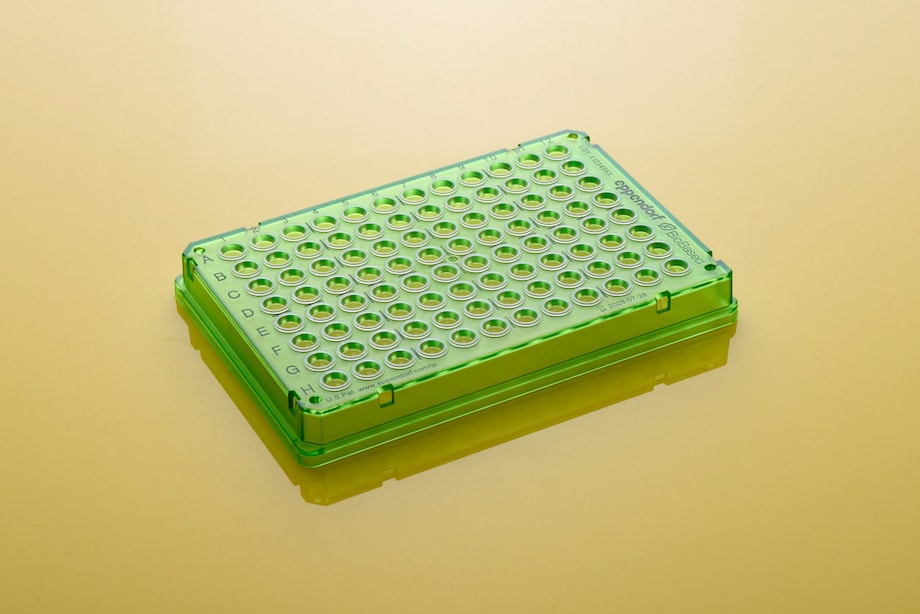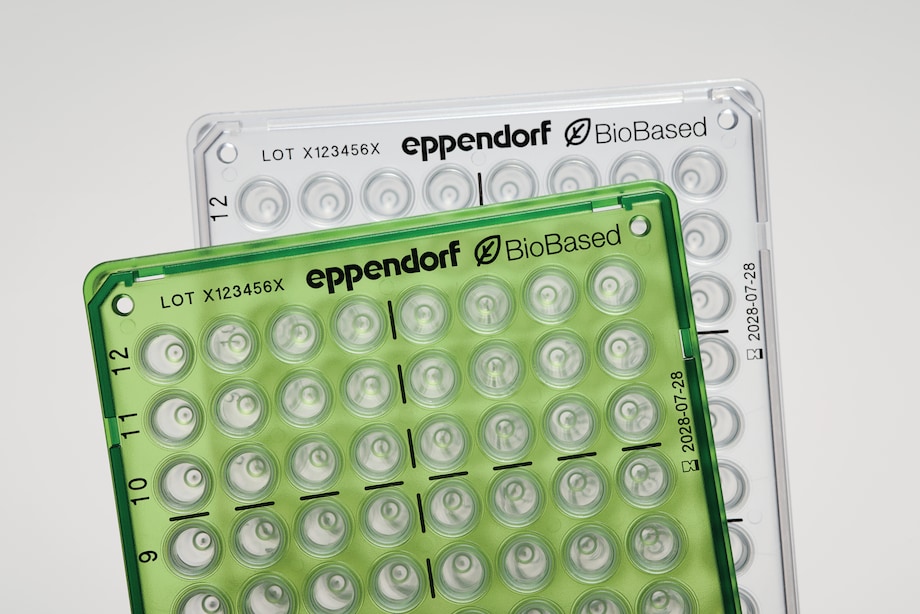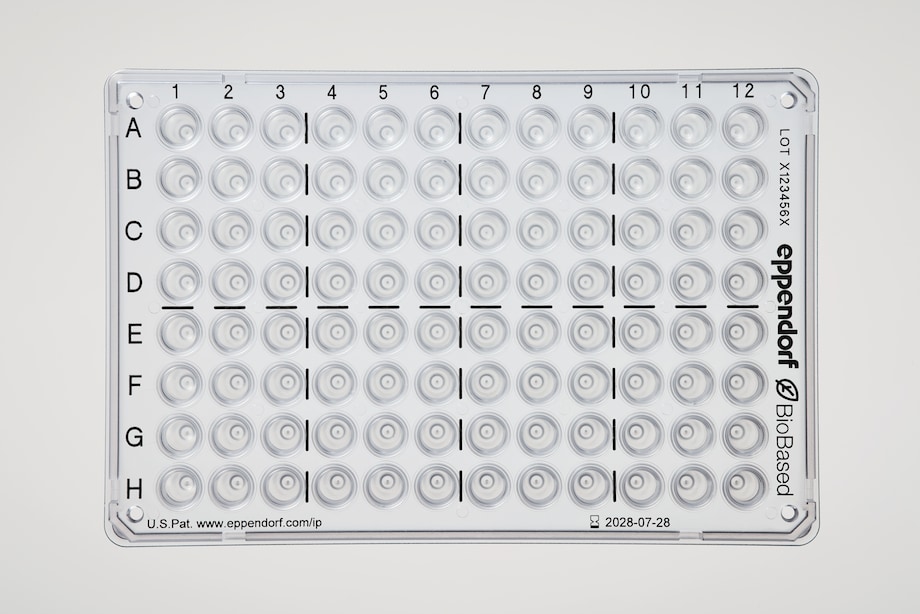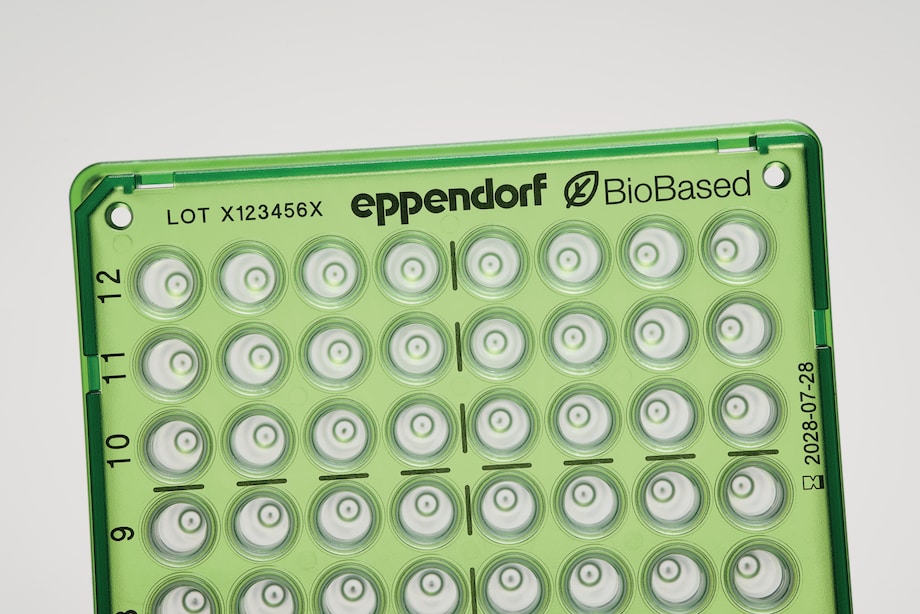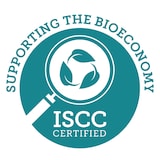MENU
PL | PLN
PL | PLN
-
- Benchtop Centrifuges
- Floor-Standing Centrifuges
- Refrigerated Centrifuges
- Microcentrifuges
- Multipurpose Centrifuges
- High-Speed Centrifuges
- Ultracentrifuges
- Concentrator
- High-Speed and Ultracentrifugation Consumables
- Accessories
- Tubes
- Plates
- Device Management Software
- Sample and Information Management
- IVD Products
No results found
Search Suggestions
Eppendorf twin.tec® Trace PCR Plates BioBased
twin.tec PCR plate (biobased) spring green ACT label

Independent sustainability certification needed? The ACT certification of My Green Lab for Eppendorf twin.tec PCR plate 96 (biobased) spring green
Eppendorf Consumables - behind the scenes!
Videos not loading, because cookies have been rejected. Change your

Product Information
Discover our new twin.tec® Trace PCR Plates BioBased made of bio-based polymer (mass balance approach). These plates allow you to significantly reduce your consumable-related carbon footprint and yet to maintain the identical technical performance.Our bio-based plates feature:
• Reduction of your lab carbon footprint
• Traceability along the entire supply chain according to the mass balance approach enabled through ISCC PLUS certification (International Sustainability & Carbon Certification)
• Improved traceability in your laboratory processes via laser-engraved lot number and expiration date on each single plate
• Improved manual and semi-automated liquid handling through a unique optical guiding grid on the 96-well plates for quick well orientation
• Customized barcode versions are available
The new bio-based plates have the identical material properties and technical specifications as our non-BioBased plates. Check out our respective Quality Certificate.
You will find additional download material at the bottom of this page
Products (7)
7 Products
|
|
|
|
|
|
|
Show more Products
Added to Your Cart
Product Information
Applications
Features
Product Information
Our Eppendorf twin.tec® PCR Plates are made for reproducible high-quality results in robotic systems. They combine extremely thin-walled polypropylene wells for optimal heat transfer to the sample with robust polycarbonate frames for high rigidity and geometrical consistency.
Our new bio-based plates open up new doors to make laboratory work significantly more sustainable without the need to revalidate existing protocols when switching from our legacy plates.
They are manufactured using polymer resins made from bio-based renewable resources. The production process follows the mass balance approach where fossil oils are substituted by second-generation renewable resources (e.g. waste and residues from forestry, vegetable oil refining or waste cooking oil). The resulting biobased polymers are chemically identical to the fossil oil-based polymers. This allows us to deliver to you the identical superior technical performance as compared to our non-BioBased plates.
Our manufacturing sites are ISCC PLUS certified by the International Sustainability & Carbon Certification organization (ISCC).
The special design and manufacturing process results in high precision products. Every single plate is a high-performance component in your workflow offering superior reproducibility.
With their laser-engraved lot and expiration date, twin.tec PCR plates BioBased are ideally suited for your complex studies, automated high-throughput applications and regulated workflows. They support traceability and documentation for your next audit.
In addition to their high-throughput and compliance features, these microtiter plates come with a laser-engraved optical guiding grid and OptiTrack® matrix that ensure quick well-orientation when you are pipetting manually.
All Eppendorf Plates are available with customized barcodes – you will find our barcode wizard here.
All Eppendorf twin.tec plates are 'PCR clean', having been batch-tested and certified by an independent and accredited laboratory to be free of a range of common PCR contaminants, including DNA, RNA, DNAse, RNAse, and PCR inhibitors. With these microplates you’ll have maximum confidence in your results.
Our new bio-based plates open up new doors to make laboratory work significantly more sustainable without the need to revalidate existing protocols when switching from our legacy plates.
They are manufactured using polymer resins made from bio-based renewable resources. The production process follows the mass balance approach where fossil oils are substituted by second-generation renewable resources (e.g. waste and residues from forestry, vegetable oil refining or waste cooking oil). The resulting biobased polymers are chemically identical to the fossil oil-based polymers. This allows us to deliver to you the identical superior technical performance as compared to our non-BioBased plates.
Our manufacturing sites are ISCC PLUS certified by the International Sustainability & Carbon Certification organization (ISCC).
The special design and manufacturing process results in high precision products. Every single plate is a high-performance component in your workflow offering superior reproducibility.
With their laser-engraved lot and expiration date, twin.tec PCR plates BioBased are ideally suited for your complex studies, automated high-throughput applications and regulated workflows. They support traceability and documentation for your next audit.
In addition to their high-throughput and compliance features, these microtiter plates come with a laser-engraved optical guiding grid and OptiTrack® matrix that ensure quick well-orientation when you are pipetting manually.
All Eppendorf Plates are available with customized barcodes – you will find our barcode wizard here.
All Eppendorf twin.tec plates are 'PCR clean', having been batch-tested and certified by an independent and accredited laboratory to be free of a range of common PCR contaminants, including DNA, RNA, DNAse, RNAse, and PCR inhibitors. With these microplates you’ll have maximum confidence in your results.


Disposal of Eppendorf twin.tec® Trace PCR Plates BioBased and their packaging material
Recycling of materials becomes more and more important every day. E.g. in Europe almost 100 % of cardboard material is already recycled. The packaging material of the Eppendorf twin.tec® Trace PCR Plates BioBased is made of different materials – for the most part made from cardboard.
Eppendorf consumables and thus also Eppendorf twin.tec® Trace PCR Plates BioBased are shipped in packaging in which both the shipping carton and the folding carton consist of at least 93 % recycled cardboard.
Please support our global sustainability initiative of recycling valuable raw material by collecting the cardboard packaging material. Dispose of the packaging material in the designated collection containers in your organization and region. In respect to the bags made of Polyethylene (PE) we recommend that you select a dedicated recycling partner where PE material can be recycled. Contact your facility or local waste management company to understand the available recycling options for your organization.
After usage, the plates themselves are defined as potentially being contaminated. This contamination can be based on biohazard, chemical hazard, or even nuclear hazard. Therefore, recycling of these vessels can be challenging. In many countries, critical waste must be burned due to legal restrictions. However, energy and heat can be recovered from thermal recycling of contaminated laboratory consumables.
To reduce the amount of critical plastic waste, you should use at least two waste containers: One for critical waste and one for non-critical waste. The definition of these two groups may depend on local regulations and should be communicated/trained in your lab accordingly. For further local waste recycling options please contact your local biosafety officer and your local waste management.
We strongly recommend a certified local recycling partner. Keeping it "local", will reduce the impact of transportation, and the "certified" aspect is recommended due to the safe and sustainable handling of lab waste.


Read More
Read Less
Applications
- Automated, standardized, and/or validated processes
- High-throughput applications
- NGS library preparation
- PCR applications
- Sample handling of smaller volumes
- Normalization and 'cherry-picking'
Features
- Reduction of consumable-related carbon footprint in the lab
- Laser-engraved lot number and expiration date on each single plate to improve traceability in your laboratory processes
- Unique laser-engraved optical guiding grid and OptiTrack® matrix for quick orientation when pipetting manually
- One-piece design: combining a polycarbonate frame and polypropylene wells for optimum performance
- Extremely thin-walled polypropylene wells guarantee optimum heat transfer to the sample
- Exceptionally solid, torque- and heat-resistant polycarbonate frame: No warping, bending or breaking during heat incubation or centrifugation
- Raised well rims for effective sealing, also reduces risk of cross-contamination
- Batch-tested and certified free of DNA, DNAase, RNase and PCR inhibitors (PCR clean)
- Available with barcode (upon request)

